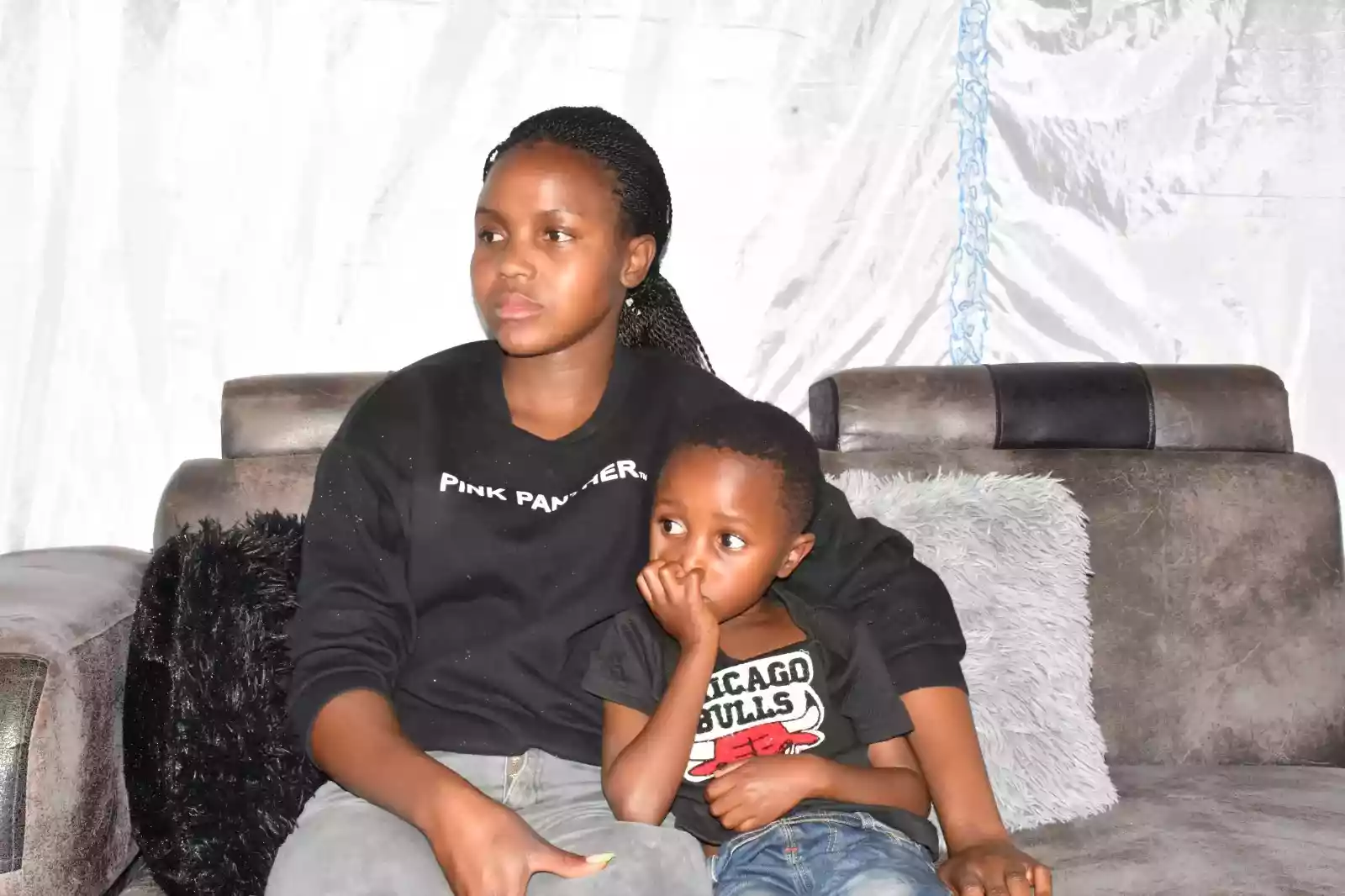
Melissa Sibanda is a 25-year-old single mother who lives in Epworth on the outskirts of Harare.
For a year, she served as a Doctors Without Borders (MSF) peer educator in the Adolescents Sexual Reproductive Health (ASRH) project, an initiative that provides comprehensive SRH healthcare to adolescents and young people in Harare’s Mbare suburb and Epworth.
Sibanda’s first hurdle in life was falling pregnant at an early age of 19. Difficult as it was, today, she looks back at how her experiences of motherhood and being a peer educator at MSF not only made her resilient but prepared her for the future.
Upon getting a job at MSF, she faced challenges trying to balance between her work and looking after her four year-old son Ryan, but little did she know that this experience was preparing her for a better future as a young mother.
Daily, Sibanda paced diligently from one corner to another, meeting adolescents and young sex workers in the streets, bars, clubs, and alleys of Epworth sharing information and responding to questions on SRH issues such as HIV, sexually transmitted infections (STIs), menstrual health, contraception, distributed condoms, conducted HIV tests and pregnancy tests.
At first when her friend invited her to apply for an MSF peer educator position advertised at Epworth Polyclinic, Sibanda was a little sceptical and unsure if she would get the job and be able to excel in it.
However, once MSF trained her after recruitment, she gradually gained confidence and was well equipped to support her peers, who are young sex workers.
Though this came with its own challenges, today she is proud of how the experience and challenges made her stronger.
- Zim wins bid to host ICASA 2023
- ICASA 2023 officially unveiled
- ‘Icasa to boost Zim tourism’
- Rich pickings for Zim in hosting Icasa
Keep Reading
“I joined MSF in 2024, and I worked with a group of 45 young sex workers in my community,” Sibanda said.
“At first it was not easy to conduct community education especially to my peers who rejected my advice suggesting I should give myself that same advice since I was just like them (sex worker).
“Sometimes, I also struggled to find them due to the nature of their work that involves a lot of movement, and I was shy to advise them on condom use at first, but eventually I overcame this.”
Her routine also worsened her situation. Daily she woke up at 6 O’clock in the morning to do household chores before going to work, preparing her son for school, and dropping him off.
Because she had to be at work early, it meant she also had to drop off Ryan at school early since the school was far from her workplace and she had no-one to take him to school.
Picking him up from school was also hard because she finished work at the same time he finished school.
Sibanda had to be in the community from 9AM in the morning until 3PM, thereafter, she would go to the MSF office and spend another hour doing data entry.
“I struggled to find solutions and even suffered from headaches,” she said.
“My son at first cried a lot, he did not want to go to school, but there was no-one to look after him at home. I asked my sister to take care of him but once she got a job, she left.”
“I then had to ask another boy who was going to the same school as Ryan to walk with him to and from school and that at least lessened my burden.”
She ended up looking for a nanny to look after Ryan while she was at work after exhausting every plan, though at weekends she would take him to work.
Sibanda appreciates great lessons from her experience both as a mother and as a peer educator.
Her circumstances forced her to find solutions, to plan, to be more organised on how to take care of Ryan and getting through to her peers who did not take her seriously at first.
At work she had to adapt for her work to be more effective by mobilising sex workers a few days before setting up health talks with them.
She even made an extra effort to find them at night at their work to ensure they accessed all the services MSF offered. In turn, they began to respect her, as they proactively looked for her for support.
Through the experience of motherhood, she also became more responsible, became better at planning, and started making decisions that were in her son’s best interests.
“I took many lessons from this experience. I now understand why it is important to be responsible as a parent, to save money, work hard, plan, secure my child’s future and ensure my child is safe always,” Sibanda said.
“While working at MSF I managed to get a passport so I could travel to neighbouring countries to buy goods for resale in Zimbabwe to boost my earnings. In the past I used to waste money, spending all of it carelessly, but now I have changed.”
Today, Sibanda is not only proud to have graduated from the MSF peer educator’s programme that weans off peer educators when they reach 25 years but is also happy to have benefitted from an MSF scholarship that paid off for her studies in Procurement and Supply.
“I never thought that this opportunity of working as a peer educator would expose me to so many other opportunities,” she said.
“I look forward to completing my advanced course in procurement and supply in August and hope to get a job that would enable me to look after myself and my son.”











